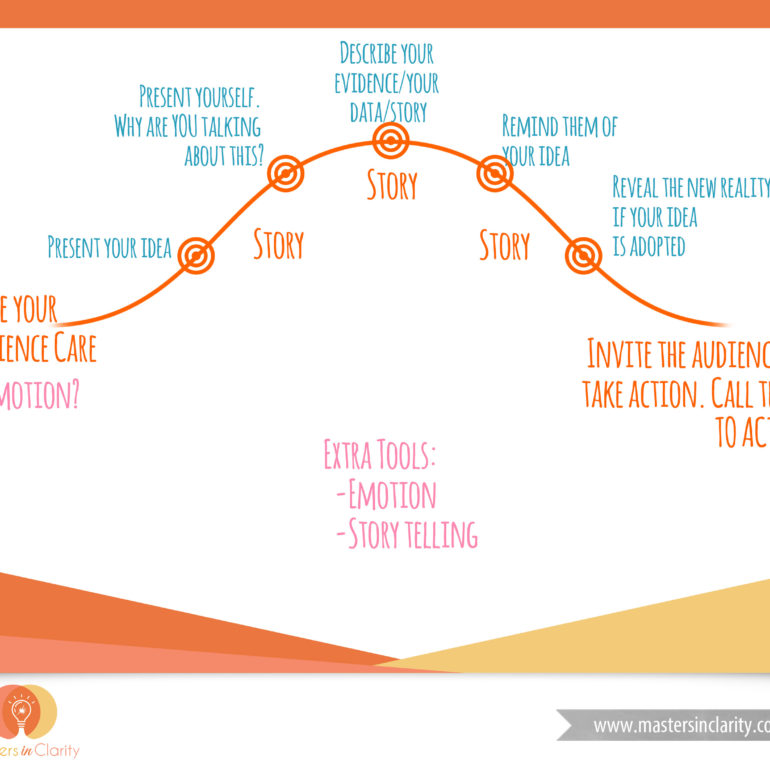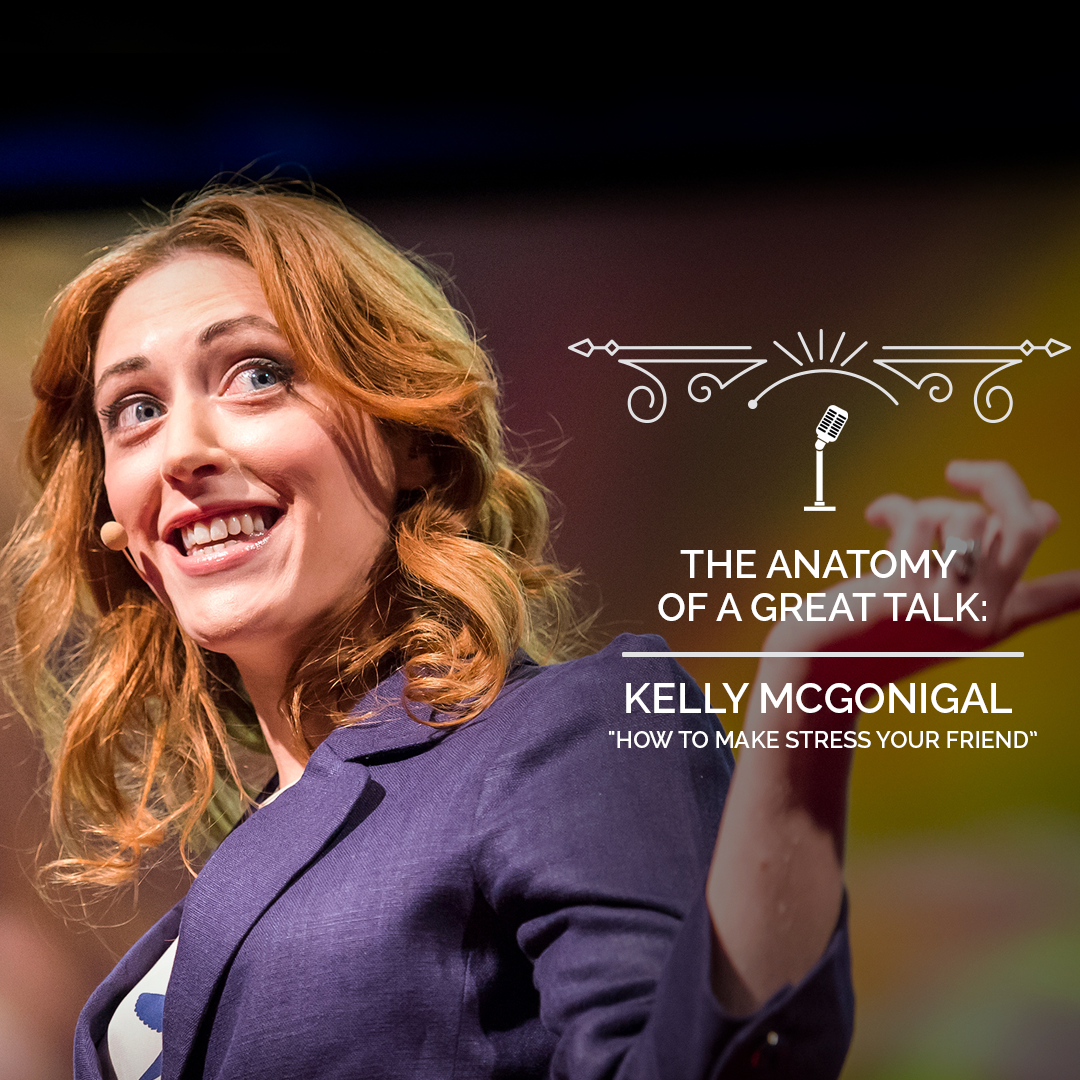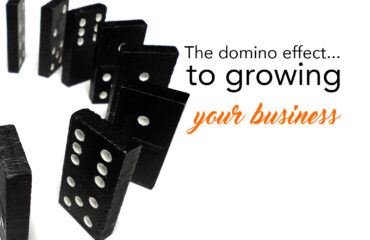
It’s Fall in the Northern Hemisphere!
With four children back in school this means: applying for college, (my oldest son is a senior), work, school dances, raking leaves, AND organizing a TEDx event for 1,200 people (coming up on November 11). And just to add to that list– it’s month #10 of a big crisis in my husband’s family.
It’s stressful…or busy, or crazy! Call it what you want. And sometimes it does not feel so good, so this talk really grabbed my attention.
Kelly McGonigal brings a new perspective to stress in her talk “How To Make Stress Your Friend” which has been viewed by over 14 million people.

MAKE THE AUDIENCE CARE
As many great speakers do, Kelly starts off with an engaging series of questions, pulling the audience in from the get-go:
Minute 00:12: “I have a confession to make. But first, I want you to make a little confession to me. In the past year, I want you to just raise your hand if you’ve experienced relatively little stress. Anyone?”
INTRODUCE YOUR IDEA
Kelly introduces her idea after talking a bit about her process in formulating the idea itself. It works as a wonderful springboard into the rest of her talk:
Minute 03:08: “So this study got me wondering: Can changing how you think about stress make you healthier? And here the science says yes. When you change your mind about stress, you can change your body’s response to stress.”
INTRODUCE YOURSELF
Kelly uses her “self-introduction” as a means not only to introduce her background, but also to lay the foundation of her idea:
Minute 00:40: “But that is not my confession. My confession is this: I am a health psychologist, and my mission is to help people be happier and healthier. For years I’ve been telling people stress makes you sick. It increases the risk of everything from the common cold to cardiovascular disease. Basically, I’ve turned stress into the enemy. But I have changed my mind about stress, and today, I want to change yours.”
PRESENT THE EVIDENCE/DATA
Minute 01:20: “Let me start with the study that made me rethink my whole approach to stress. This study tracked 30,000 adults in the United States for eight years, and they started by asking people, “How much stress have you experienced in the last year?” They also asked, “Do you believe that stress is harmful for your health?” And then they used public death records to find out who died.”
( And she continues to cite multiple studies as she develops her topic.)
REMIND THE AUDIENCE OF YOUR IDEA
Minute 05:55; “Now, in a typical stress response, your heart rate goes up, and your blood vessels constrict like this. And this is one of the reasons that chronic stress is sometimes associated with cardiovascular disease. It’s not really healthy to be in this state all the time. But in the study, when participants viewed their stress response as helpful, their blood vessels stayed relaxed like this. Their heart was still pounding, but this is a much healthier cardiovascular profile. It actually looks a lot like what happens in moments of joy and courage. Over a lifetime of stressful experiences, this one biological change could be the difference between a stress-induced heart attack at age 50 and living well into your 90s. And this is really what the new science of stress reveals, that how you think about stress matters.”
REVEAL THE NEW REALITY
Minute 11:27: “Okay, so the bad news first: For every major stressful life experience, like financial difficulties or family crisis– that increased the risk of dying by 30 percent. But — and I hope you are expecting a “but” by now — but that wasn’t true for everyone. People who spent time caring for others showed absolutely no stress-related increase in dying. Zero. Caring created resilience.”
INVITE YOUR AUDIENCE TO TAKE ACTION
Minute 12:00: “And so we see once again that the harmful effects of stress on your health are not inevitable. How you think and how you act can transform your experience of stress. When you choose to view your stress response as helpful, you create the biology of courage. And when you choose to connect with others under stress, you can create resilience. Now I wouldn’t necessarily ask for more stressful experiences in my life, but this science has given me a whole new appreciation for stress. Stress gives us access to our hearts. The compassionate heart that finds joy and meaning in connecting with others, and yes, your pounding physical heart, working so hard to give you strength and energy. And when you choose to view stress in this way, you’re not just getting better at stress, you’re actually making a pretty profound statement. You’re saying that you can trust yourself to handle life’s challenges. And, you’re remembering that you don’t have to face them alone.”
In the meantime, I will embrace my stress, the racing of my heart, the sweaty palms, the rapid breathing– especially as I take the stage to lead our third TEDxNewBedford on November 11!
Have a great weekend,







